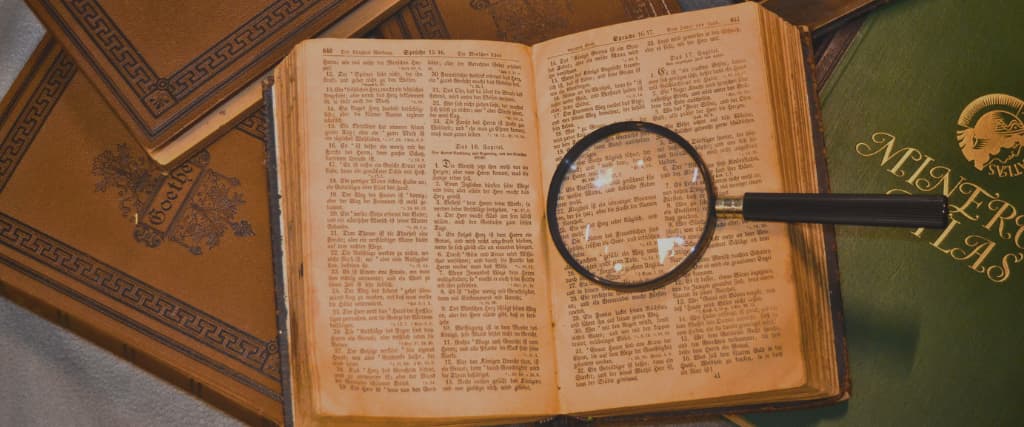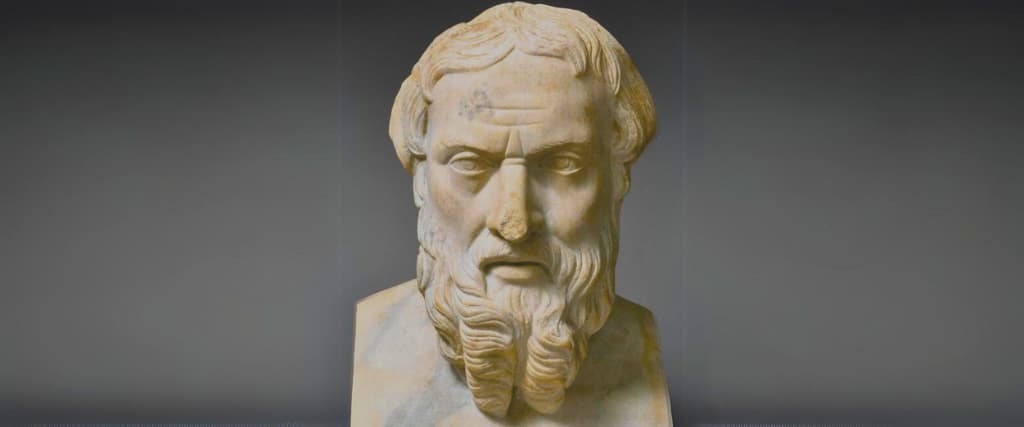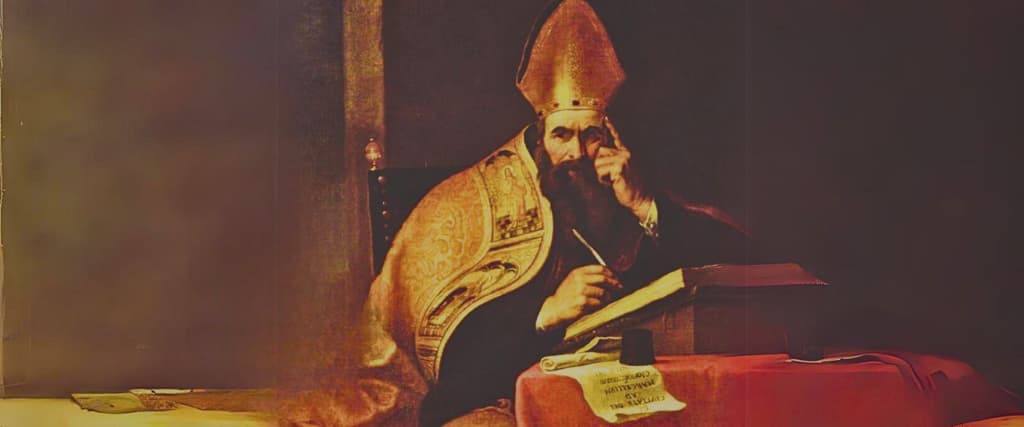Historiography is the branch of literature that deals with written theory and history accounts. It focuses on critically examining the source, systematically selecting specific information from genuine materials in those sources, and integrating that information into upheld accounts.
Historians today endeavor to reconstruct the details of man’s past events to get a more profound knowledge of them. This concept is pretty recent, having emerged in the late 18th (and early 19th) centuries with the birth of “scientific” history and the academic field of history, respectively.
It stems from a relatively new perspective in humanity’s civilization: the notion that studying history is a natural and unavoidable human activity.
History of Historiography
Virtually all human societies have narratives about their past. The tales can be about their origin, ancestors’ deeds, heroes and heroines, divine beings, exceptional events, traditional practices, and more. Before man discovered writing, these tales were only kept alive through reciting and memorizing.

The consistency in the details of the stories was the only authentication criteria to determine their truth. This primordial human narration activity gives rise to history, which can be described as an account that seems to be accurate of events, perspectives, and emotions at some period of human history.
Ancient Historiography
The First Histories

In the beginning, there was only the spoken word, while in the thousands of years before the invention of writing, humans shared their experiences through word of mouth. Different types of oral narratives are still significant everywhere around the globe. And the fact that stories have been passed down for many generations shows that people who don’t write can have a good sense of history.
However, the historical record must begin with a systematic writing format and use the proper writing equipment.
Some of the earliest writing forms included cuneiform by the Egyptians and pictographs by the Mesopotamians, which were carved on clay tablets and stones. Another famous ancient writing form was the Chinese ideograms, imprinted in oracle bones and bronze.
The Egyptians, Mesopotamians, and Chinese were the first people to keep contemporaneous chronicles of their forefathers, monarchs, and rulers.
Egypt and Mesopotamia

It is estimated that the earliest Egyptian lists date back to the 3rd millennium BCE, more than 1,000 years before the time when rulers were believed to freely intermingled with their gods.
The Entries were thought to be made year by year, making a list one of the oldest in the history. Besides the names and titles of the monarchs, there were mentions of events, particularly in the later years, although it is hard to figure out why they are there.

There are vague references like “Striking of the cave inhabitants” in-between lists of parts of the ritual. Despite their sporadic obscurity, the early historians managed the challenging task of organizing history into components of the same size (years) and attributing occurrences to them.
China

Early Chinese history was characterized by an annalistic culture that lasted for centuries and a growing emphasis on history as a collection of moral values. First historians in China are believed to have been temple archivists, but as the Chinese state’s bureaucratic structure grew, these historians were elevated to high-ranking positions.
History gained popularity in China thanks to the philosopher Confucius (551–479 BCE), who was believed to have written the Shujing (“Classic of History”) and the Chunqiu (“Spring and Autumn [Annals]”).
His works articulated that the Chinese historical philosophy was highly moralistic, and virtue was defined as following in the footsteps of your forefathers. There was persistent interest in the structure of governmental institutions. Similarly, there was a constant belief in the Mandate of Heaven—the belief that a monarch reigned by a divine decree, which was to be revoked if they did evil.
Hebrew Traditions

Western history relied heavily on the Hebrew Bible (particularly the Old Testament), just like the Chinese history relied heavily on the dynastic histories. The Bible is primarily a history work, despite its many other attributes. For example, 17 of its total 39 books are historical, while its prophetic books, five major and 12 minor, also give moral views of historical events.
Additionally, the Hebrew Bible mentions the existence of chronicles of Israelite monarchs, although these have since been erased.
Thanks to the Bible, Western Asian peoples have a creation myth, an account of a flood that nearly destroys humanity, comprehensive genealogical lists, a collection of rules or commandments, and the consequences of supernatural rage on the wellbeing of rulers and populations.
Nonetheless, the Yahwist writer (source of the Pentateuch or Torah, the first five Hebrew Bible books) had a unique view of the past. It was only because of this view that the Hebrews saw themselves as different from others.
Greek Historiography

The origin of Greek history started with a group called logographoi, “logographers.” Logography was the written record of oral stories about the beginnings of towns, individuals, and places. It gathered information about geography and culture and is perceived as the earliest form of cultural anthropology.
Hecataeus of Miletus, the most famous of the logographers, explained his mission in his Genealogia (about 490 BCE) as follows: “I’m writing what I believe to be the truth, because the concept the Greeks share with us, in my view, contradictory and laughable in court.”
The logographers also worked as lawyers and speechwriters in the courtroom. However, the need to establish facts and explain theories strongly inspired their writing work.
Herodotus

Even though the logographers were the first people to study history, Herodotus, often referred to as “the father of history,” superseded their impact. His Annals of “the Greco-Persian Wars” is still the longest ancient Greek text.
This piece of work has survived longer than so many other great ancient Greek works, including most of the plays of the great playwrights (Euripides, Aeschylus, and Sophocles) and a large portion of Aristotle’s corpus. This is proof of the utmost respect it received over the generations.
Thucydides
Thucydides was Herodotus’s most prominent critic and imitator (5th century BCE). While Herodotus had dared to hope that time would not destroy the glory of the Greeks, Thucydides, on the other side, didn’t have much glory to celebrate.
Thucydides, unlike Herodotus, opted to focus on facts instead of crowd-pleasing fiction. He steered clear of mythological and oracles. He understood that even the eyewitnesses were not trustworthy sources.
Thucydides’ excellent book, “The History of the Peloponnesian War,” is about the threatening war between Sparta and Athens from 431 to 404 BCE. He said he didn’t want to write down the very first story he heard or even go by his general impressions.
Roman Historiography
Polybius
Greek historiography was passed down to the Romans along with other aspects of Greek civilization. The Romans were informed of its privilege and tried to imitate it in many ways, but their very different personalities left their mark on it.
Polybius, a Greek who wrote in Greek and lived around 200–118 BCE, was the first person to write about the growth of the Roman state and explained elements of Roman culture that the Romans rarely observed.
Diodorus, Sallust, and Livy
While human experience and eyewitness narratives may record a critical historical point, they could not provide universal history. Diodorus Siculus, who lived in the first century BC, was the only ancient writer to come near this ideal.
Diodorus tracked to 60 BCE the histories of Arabs, Egyptians, Assyrians, Ethiopians, Greeks, Romans, Indians, Amazons, Atlanteans, and Scythians. He is one of the key ancient believers who believed that Plato and other Greek scholars gained knowledge from the Egyptians.
Tacitus

Tacitus was a Roman public officer and orator. He is widely considered one of the most significant Roman historians and one of the best literary stylists who composed in Latin.
His two critical works, the Annals, give accounts for the years 14–68 CE, and the Histories, which cover the first century of the principate and end when emperor Domitian (96 CE) dies,
Tacitus’s unique writing style is still an inspiration to people many generations later. In his essay on style, he said that styles resulted from changes in history, not just something the historian chose.
Tacitus noted of the emperor Galba’s brief reign: “Capax imperium, nisi imperasset” (“He would’ve been fit of reigning, except that he reigned”). He also said, “Solitudinem faciunt, pacem appelant” (they have created a wilderness and named it peace) about Roman pacification tactics.
Suetonius and Plutarch
Suetonius is famous for writing De Vita Caesarum, “Lives of the Caesars.” In each case, he talks about what each emperor did well as a leader and in the military, then describes his personality and personal life.
Suetonius was formerly an imperial secretary and used information from the imperial archives to write his book “Lives.” However, the book is famed for the scandalous specifics it gives about the emperors’ private lives.
Medieval Historiography

The Early Christian Conception Of History
The first Christians believed that history was about to end because Jesus had promised that his true disciples would be alive when he returned a second time. With such end-of-the-world hopes, all they cared to know was about God’s Creation and how Jesus had won over death by Resurrecting.
So, it wasn’t a given that Christians would become interested in history or develop their view of history. But the people who wrote the classical Gospels (Matthew, John, Mark, and Luke) thought the Hebrew Bible was reliable and changed it to fit the new information.
Augustine

The fall of Rome by the Visigoths in 410 presented a severe challenge to Eusebius’ historical interpretation. The most renowned answer was St. Augustine of Hippo’s (354-430) massive De civitate Dei contra paganos (413-426/427; City of God).
Augustine was compelled to address the claim that the introduction of Christianity as Rome’s official religion had resulted in the empire’s collapse. His answer shattered the empire’s and Christianity’s identities.
